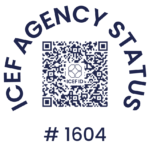This Digital Economies MSc is a multidisciplinary programme that examines how digital technology is shaping contemporary work, production, exchange, and collaboration.
You’ll critically explore these aspects and address the big questions we face as a society. With your cohort, you’ll gain a holistic perspective of how digital technologies are transforming labour, markets, platforms, and institutions. You’ll also develop a comprehensive understanding of the tools we can harness to tackle the challenges presented by this transformation.


